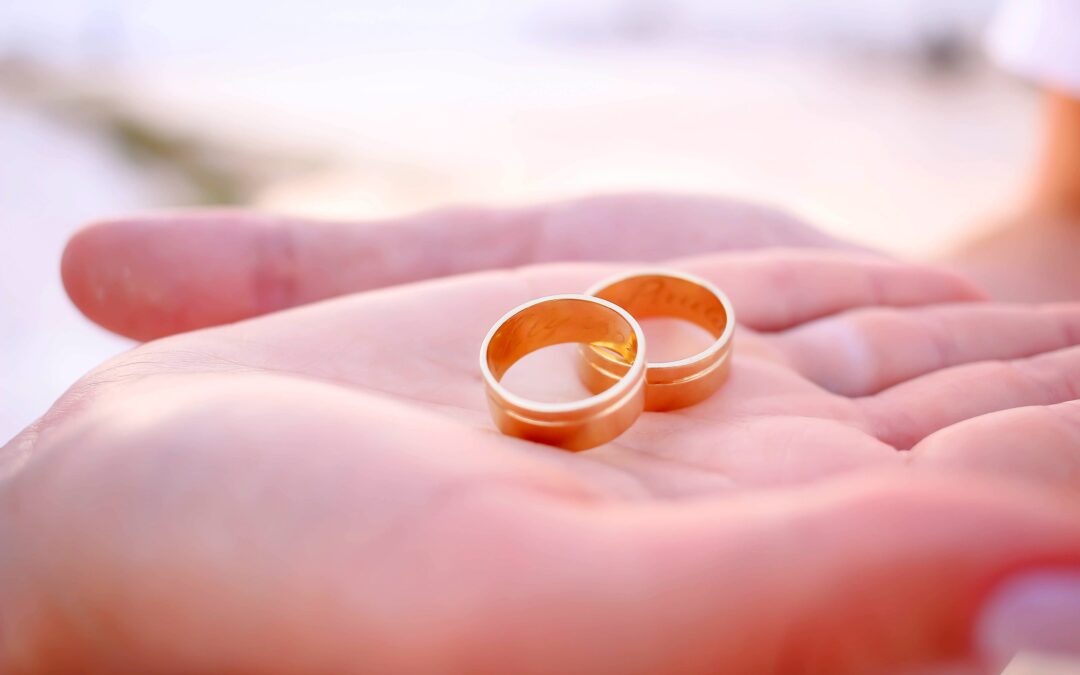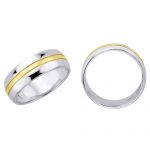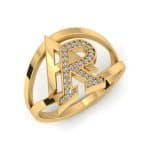When it comes to wedding bands, the question of whether they should (or must) match has been a topic sparking spirited discussions among soon-to-be-married couples. What is the background behind this long standing tradition?
The choice of matching or non-matching wedding bands can be deeply personal. A couple’s decision will be influenced by a combination of historical traditions, symbolism, modern preferences and more. Ultimately, the key is open communication. A couple’s wedding bands should reflect their unique love story.
The Tradition of Matching Wedding Bands
Historical Perspective on Matching Bands
Matching bands have a history dating back to ancient Egypt, where lovers exchanged rings made from hemp and leather. The circle symbolises eternity and the unending love between the couple. Throughout history, matching bands have been seen as a symbol of unity and togetherness. The paired objects represent the idea of two individuals joining as one.
The symbolism of Matching Wedding Bands
Matching wedding bands symbolise the idea of shared love, values, and commitment between two individuals. The traditional view is that the identical design represents the unity of the couple and their journey as spouses. It’s a powerful statement of their dedication to each other.
The Modern Take on Wedding Bands
Celebrating Individuality with Unique Bands
When considering “Are wedding bands supposed to match?”, many modern couples opt for designs that resonate with their style and preferences. Rather than adhering to the tradition of totally identical rings, this form of expression is increasingly accepted. This contemporary approach emphasises the idea that while the couple is united in love and commitment, they remain distinct individuals.
Trends in Non-Matching Wedding Bands
The trend of non-matching wedding bands has grown in popularity in recent years. Couples like to select different metals, gemstones, or designs that reflect their taste and style. Commonly, wedding rings are chosen that complement each other without being entirely identical for a meaningful touch.
Factors to Consider When Deciding
Personal Style and Preferences
Do you and your partner have similar tastes when it comes to jewellery? Or do you prefer unique designs that reflect your individuality? Your wedding bands should be a true representation of your personalities.
The Engagement Ring Factor
Some choose to match their wedding bands to their engagement ring, while others prefer a more diverse look. Finding harmony between the two is essential for a cohesive and visually appealing combination.
Practical Considerations
Consider functional factors like durability, maintenance, and comfort. Some designs and materials may be suitable for your lifestyle but not your partners.
Ways to Achieve Harmony Without Matching
Coordinating Metals or Gemstones
It’s possible to maintain a level of coordination without completely matching designs. Consider choosing bands that share the same metal type or gemstone. This creates a sense of unity while allowing room for individuality.
Engraving and Personalization
Another way to achieve harmony is through personalisation. Engraving initials, a wedding date, or a meaningful message inside your bands can connect them symbolically. Plus, it’s a beautiful way to commemorate your unique journey.
Communication Is Key: Making the Right Choice
Ultimately, the question of “Are wedding bands supposed to match?” should be answered together as a couple. Open and honest communication is essential. Discuss your preferences, values, and what you want your wedding rings to represent. Your rings are a symbol of your love and commitment, and the choice should reflect your unique bond.
Are wedding bands supposed to match? Only if you want them to!
Browse the wide range of stunning wedding bands on offer from OM Gold in Perth online now, or get in touch today with any special request or customisation queries.




